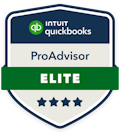Tax Tips for Students & Families: 2025 Back to School Edition
As another school year begins, many families and students are thinking beyond books and tuition and wondering how education costs and student loans fit into their bigger financial picture.
With new changes under the One Big Beautiful Bill Act (OBBBA) and updates to existing credits and deductions, now is the perfect time to refresh your knowledge on the tax breaks that can help lighten the load.
Here’s a breakdown of the most important tax-smart strategies for education in 2025:
Student Loan Interest Deduction
If you or your dependents are paying off student loans, you may still qualify for the Student Loan Interest Deduction allowing you to deduct up to $2,500 of interest paid on qualified loans.
-
Who Qualifies
- You must have paid interest on a qualified student loan during the tax year.
- Your filing status cannot be Married Filing Separately.
- You (or your spouse, if filing jointly) cannot be claimed as a dependent on someone else’s return.
-
Income Limits for 2025
- The student loan interest deduction phases out based on your Modified Adjusted Gross Income (MAGI):
- Single filers: Full deduction below $85,000. The deduction phases out between $85,000 and $100,000. No deduction if your MAGI is above $100,000.
- Married filing jointly: Full deduction below $170,000. The deduction phases out between $170,000 and $200,000. No deduction if your MAGI is above $200,000.
- If you’re under the lower threshold, you can take the full deduction (up to $2,500).
- If you’re within the phase-out range, you qualify for a partial deduction.
- If you’re above the upper limit, you don’t qualify.
- The student loan interest deduction phases out based on your Modified Adjusted Gross Income (MAGI):
-
Loan Requirements
- The loan must have been taken solely to pay qualified education expenses for yourself, your spouse, or a dependent.
- It must be for a student enrolled at least half-time in a degree or certificate program.
- Private, federal, and refinanced student loans can qualify, but loans from a relative or employer do not.
-
Maximum Deduction
- You can deduct up to $2,500 of interest paid per year.
- This is an above-the-line deduction (you don’t need to itemize).
Many people find out their eligibility when they receive Form 1098-E (Student Loan Interest Statement) from their loan servicer each January.
That’s the document that shows how much interest you paid during the year.
Employer Student Loan Assistance (Made Permanent)
One of the most impactful changes from OBBBA is the permanent extension of tax-free employer student loan repayment assistance.
- Employers can contribute up to $5,250/year toward student loan payments on your behalf.
- This amount is not taxable income to you, and the cap will now adjust for inflation starting in 2026.
- Employers may also combine this benefit with tuition reimbursement programs, offering even more educational support.
Education Tax Credits: AOTC & LLC
Two major credits continue to help families offset education costs:
- American Opportunity Tax Credit (AOTC): Worth up to $2,500 per eligible student, available for the first four years of undergraduate study.
- Lifetime Learning Credit (LLC): Worth up to $2,000 per tax return, for undergraduate, graduate, and job-skills courses—no limit on years.
- Both have income-based phase-outs:
- AOTC phases out at $80,000/$160,000 MAGI (single/joint).
- LLC phases out at $80,000/$160,000 as well.
- To see if you're eligible to claim an education credit, head to https://www.irs.gov/help/ita/am-i-eligible-to-claim-an-education-credit.
Looking Ahead: Potential Changes
Some proposals in Congress aim to simplify or overhaul education tax benefits.
This could include ending the student loan interest deduction or merging credits.
While nothing is finalized, it’s a reminder to take advantage of these breaks while they’re still available.
Key Takeaways
- Deduct up to $2,500 in student loan interest if your income qualifies with the student loan interest deduction.
- Ask your employer about student loan repayment assistance, which is now tax-free and permanent.
- Claim education credits (AOTC/LLC) to maximize tax savings on tuition and fees.
- Stay alert for possible changes in the coming years.
Planning Ahead with DJL
Navigating the overlap of education costs, taxes, and long-term financial planning can feel overwhelming, but you don’t have to do it alone.
At DJL Accounting & Consulting Group, we help students, parents, and professionals make the most of today’s tax rules while preparing for tomorrow’s changes.
Whether you’re managing student loans, saving for college, or planning for retirement after your kids graduate, our team is here to guide you every step of the way.
Contact us today to build a tax-smart strategy for your education and beyond.
Disclaimer: This blog is for informational purposes only and not intended to be taken as professional advice. Always consult a qualified professional for specific guidance. While we aim to keep information accurate and current with 2025 tax regulations, be sure to review guidelines annually for updates as they frequently change.
- Debra Rodway's blog
- Log in to post comments



